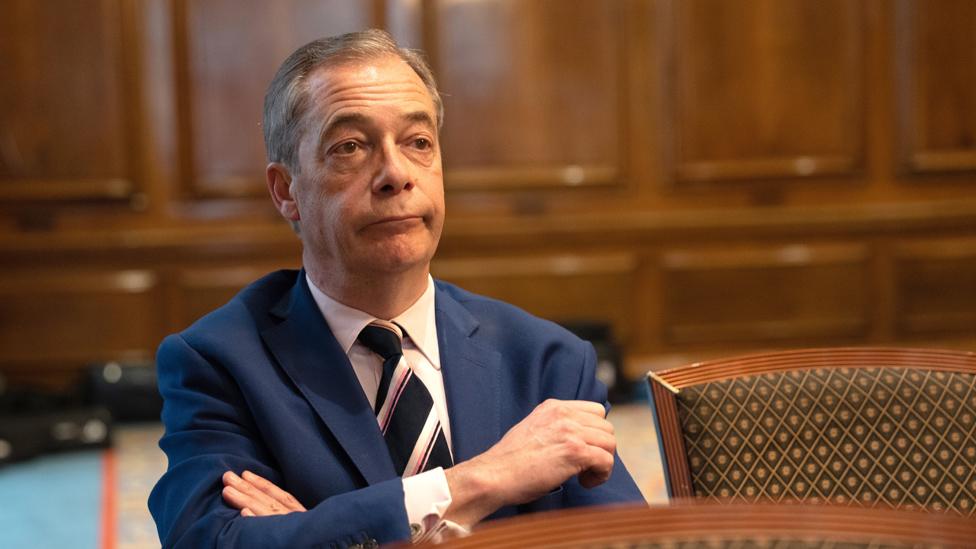Bank account closures probe must be fast tracked, says minister
- Published

A review into whether banks are closing accounts of people who are "politically exposed" should be prioritised, a Treasury minister has said.
In a letter to the Financial Conduct Authority, Andrew Griffith said it was vital elected officials could access banking services.
It comes after Nigel Farage said his accounts were being shut for political reasons - something people familiar with the decision dispute.
The FCA has been contacted for comment.
Mr Farage tweeted, external he was "delighted" the government was putting pressure on the watchdog to act.
Someone classed as a politically exposed person, or PEP, generally presents a higher risk for financial institutions as they are deemed to be more exposed to potential involvement in bribery and corruption by virtue of their position and the influence they may hold.
As a result, banks are required to do extra due diligence on them.
Mr Griffith, who is Economic Secretary to the Treasury, said in his letter to the financial watchdog that while he recognised the importance of measures to prevent money laundering, "it is crucial that an appropriate balance is struck" so that elected officials and their families can access banking services.
He added that it had been "made clear" that "some financial institutions may be failing to strike the right balance of taking a proportionate approach based on a careful evaluation of the actual risk".
"The government is clear that domestic PEPs should be treated in a manner which is in line with their risk, and that banks should not be closing individuals' accounts solely due to their status as a PEP," Mr Griffith said.
This week, Mr Farage, who is the former leader of UKIP, the Brexit Party, and a former member of the European Parliament, said his bank was closing his accounts without justification.
He said he believed his account was being shut because of his status as a PEP and that he had since been turned down by nine other lenders.
But the BBC has been told Mr Farage fell below the financial threshold required to hold an account at Coutts, the prestigious private bank for the wealthy.
On Tuesday, Mr Farage did not dispute the fact that he did not meet Coutts' threshold, but added: "They didn't have a problem with it for the last 10 years."
He added: "Are you telling me that all the other banks say it was a PEP thing and Coutts wasn't? Draw your own conclusions."
In response to the letter to the FCA, Mr Farage tweeted he was "delighted that the Chancellor and City Minister are putting pressure on the FCA to review why banks are giving UK PEPs such a hard time".
"Even better would be to change the law. It is an EU directive and a Brexit government ought to deal with it," he added.
The Treasury has previously said it would be a "serious concern" if financial services were being denied to those exercising their right to lawful free speech.
A spokesman said: "We are already looking into this issue and have passed a law that requires the Financial Conduct Authority to review how banks treat politically exposed persons - so we can strike the right balance between the customer's right to free speech and the bank's right to manage commercial risk."